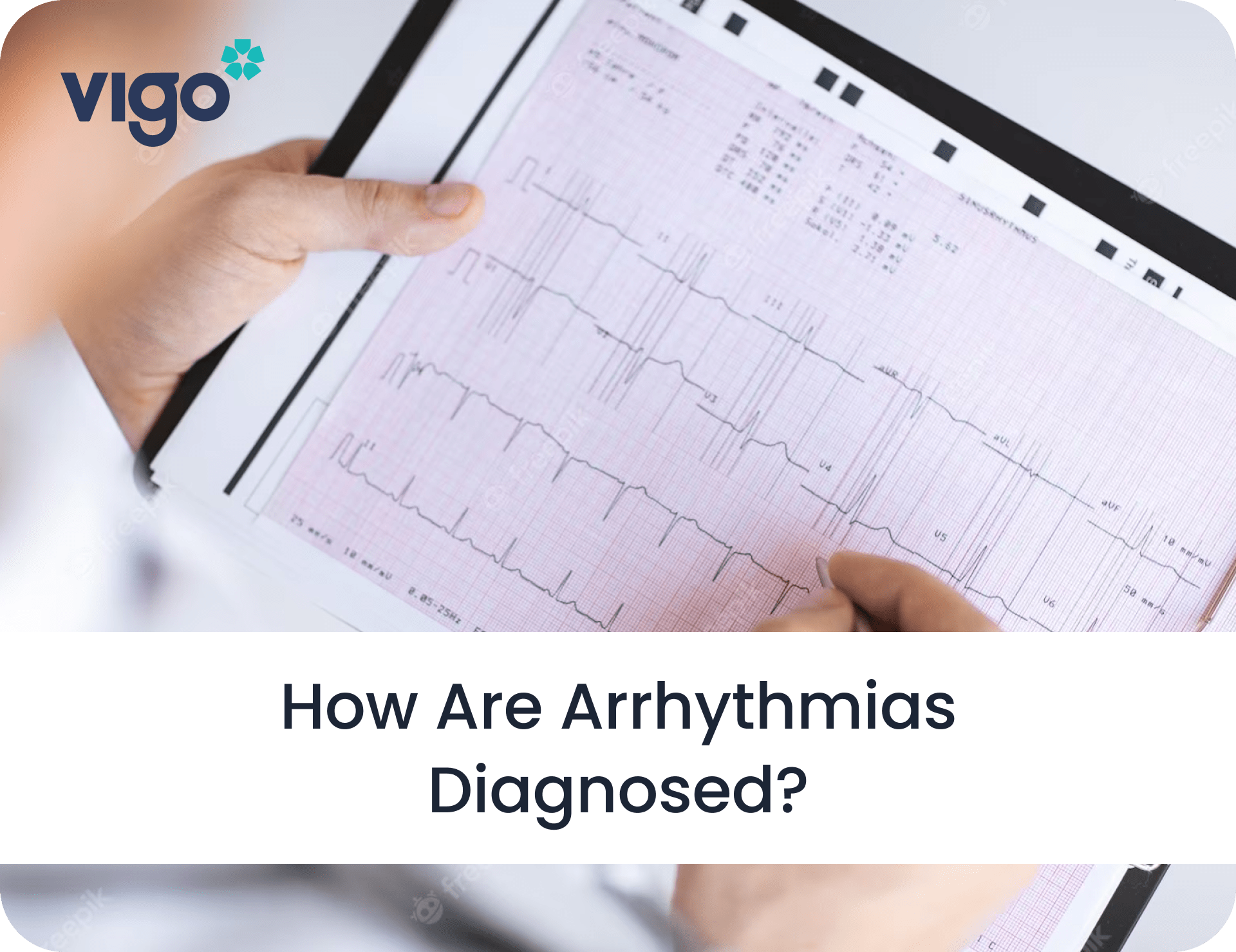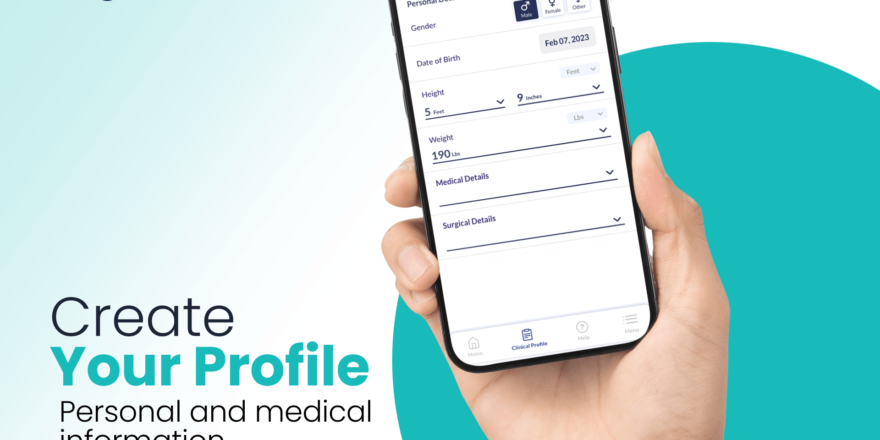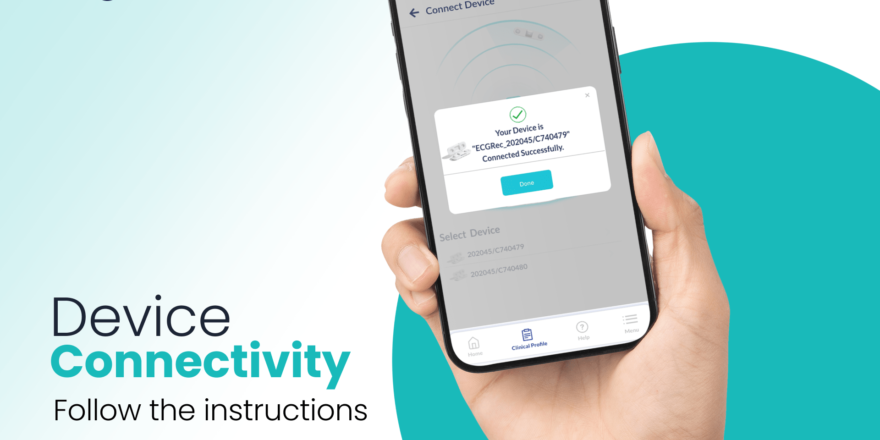Arrhythmias can be diagnosed by an Electrocardiogram (ECG) that monitors the electrical activity of the heart. Continuous ECG monitoring over a duration of a few days (a.k.a ambulatory ECG monitoring) is known to detect Arrhythmias more effectively when compared to spot-check ECG tests that last only for 10 seconds.
Ambulatory ECG monitoring can happen within the comfort of your home without interruption or hindrance to your daily routines. This method can help detect heart rhythm problems triggered in real-life settings.
Your doctor may prescribe ambulatory ECG monitoring to correlate unexplained symptoms such as palpitations (fast heartbeats), dizziness, or syncope (loss of consciousness), among others.



